In a city that is almost unrecognisable from pictures taken only 50 years ago, a city of ugly shopping malls, grim traffic choked highways and scores of depressing, boxy, apartment blocks, Gulou is Beijing’s heart and soul.
The labyrinth of alleyways, or hutong, have wound their way around the old Drum and Bell towers, two majestic structures that once kept the time for the city’s residents, for centuries.
The square between the two towers was, until recently, the Saturday night hang out of groups of elderly Chinese women who would set up a blaring speakers for their group dancing. The local men, meanwhile, would gather in half-lit doorways surrounding the square, huddled over games of Mah Jong. Kids would run lose through the streets, stopping at houses to pick up their mates, more like siblings in this nation of only children.
These alleyways have housed Beijing families for hundreds of years. Families that have watched emperors come and go, dynasties rise and fall, war, revolution, famine. But now they are falling victim to something they can’t stop – gentrification.
The ancient area is being knocked down so it can be rebuilt, shiny and new. Many of the residents have been relocated to modern apartment blocks, the bars and restaurants are moving elsewhere.
Homes have been reduced to giant piles of rubble, children’s toys and bits of clothing peeking through the piles of bricks. A half demolished room still has children’s stickers in the wall. Three empty song bird cages remain strung up, over the sad piles of broken bricks.
But there are hints of the old neighborhood. A group of elderly people play mahjong on makeshift tables. A barber operates a street side hair-cutting operation meters away from a pile of sad looking bricks.
I find the one bar still open, Au Gulou. The owners tell me they are only serving bottled beer, indicating to the one working fridge. They are packing up the downstairs bar, boxing the old decorations. I go to the rooftop, most of the couches have been covered in plastic. In front of the bar and to either side, the buildings are being prepared for demolition, or already lie in ruin, but behind the bar, away from the main thoroughfare, the homes remain untouched. I hear a couple arguing, and looking into a courtyard, a young man comes out with a plastic bucket to do some laundry.
The demolished homes will be rebuilt in much the same style, but a little cleaner, a little neater, the rough edges rounded, the shabby charm smoothed away. This beautification process has already occurred in other parts of Beijing, where the old architecture is re-created to house Starbucks and Zara’s.
I drink my beer and remind myself not to get too romantic. The old hutong homes have their problems. They are freezing in winter, and many do not have adequate plumbing, the residents have to use public toilets. Elderly residents have difficulty with wheelchairs.
As I leave I ask the owners of Au Gulou how much longer they will be open for. The bartender shrugs “A day, maybe two,” and starts de-stocking the beer fridge.

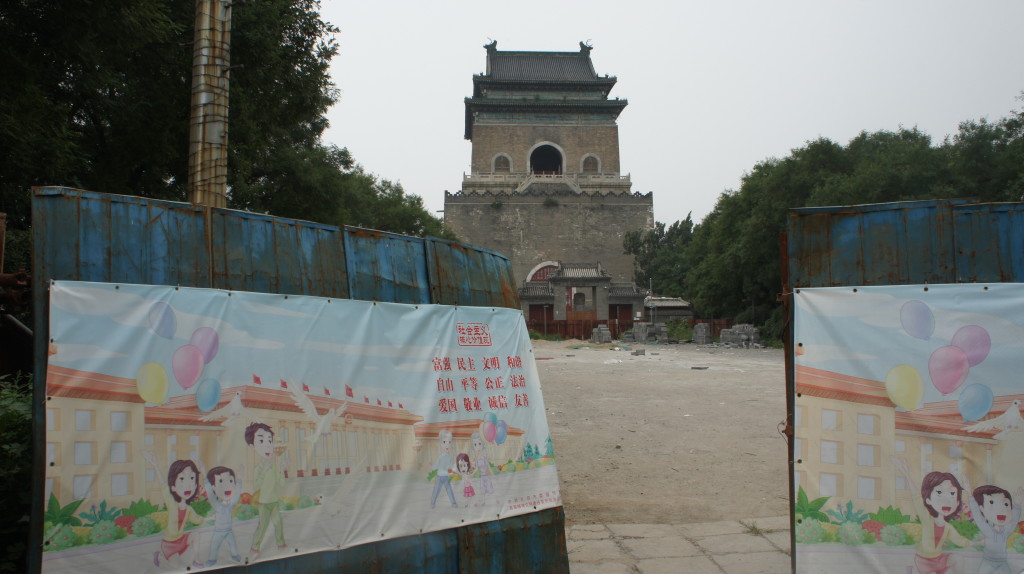

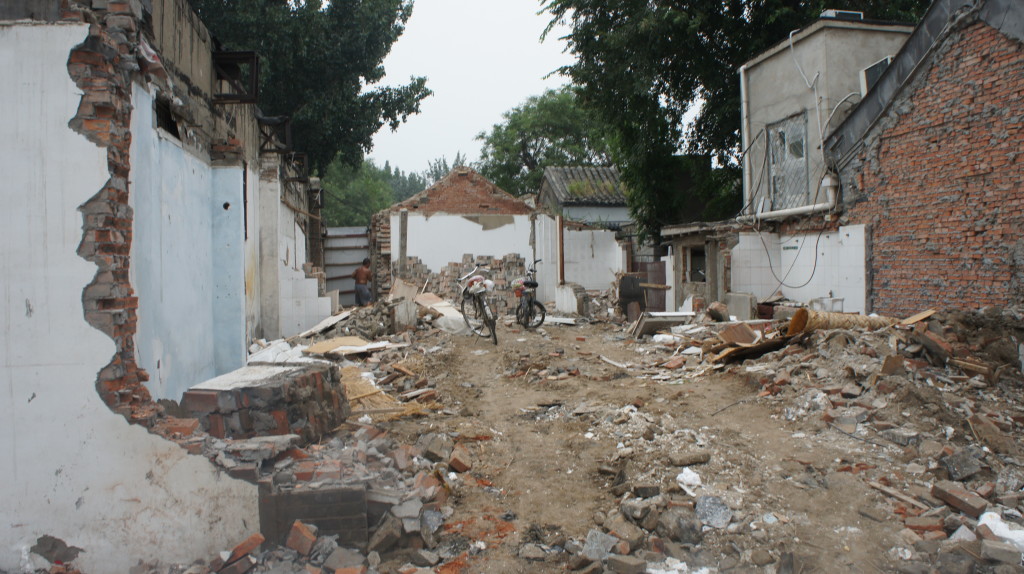

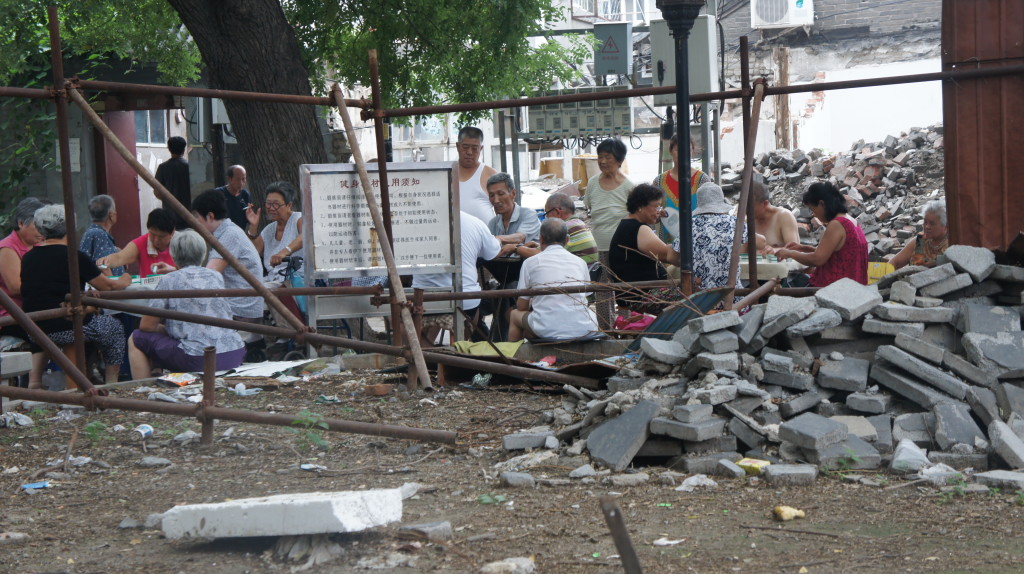
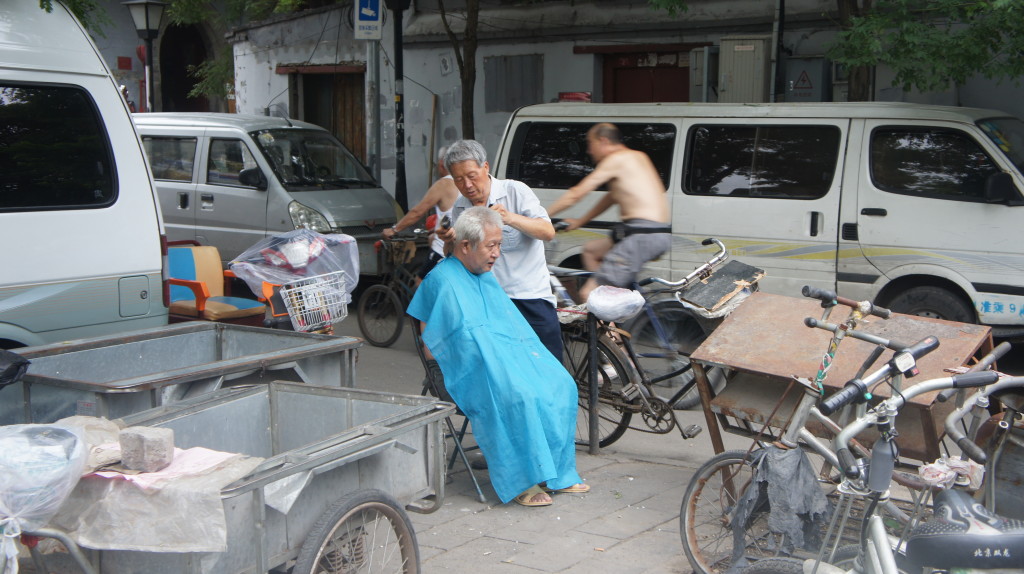
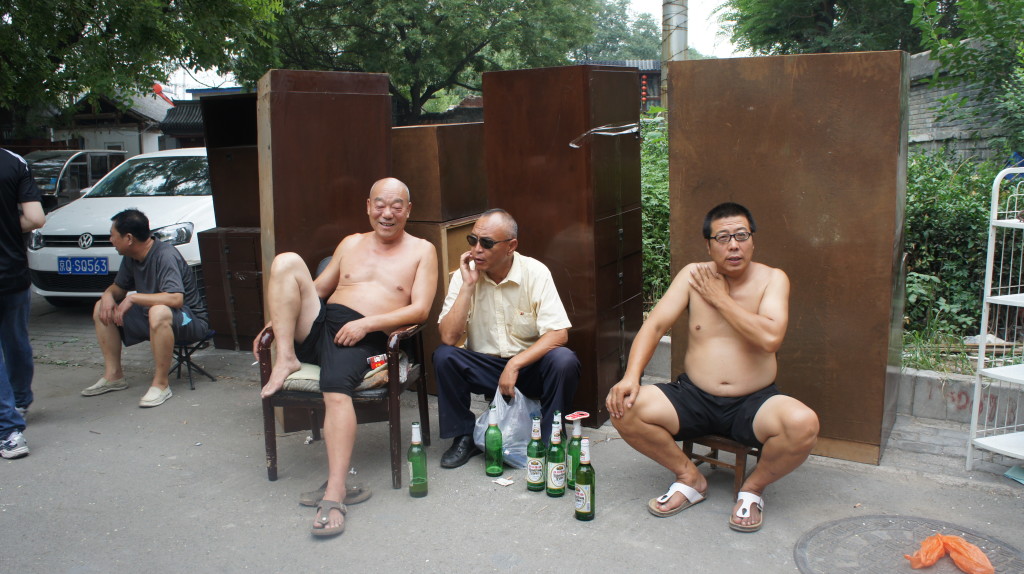

Well done Bella, a very enjoyable read, Niamh